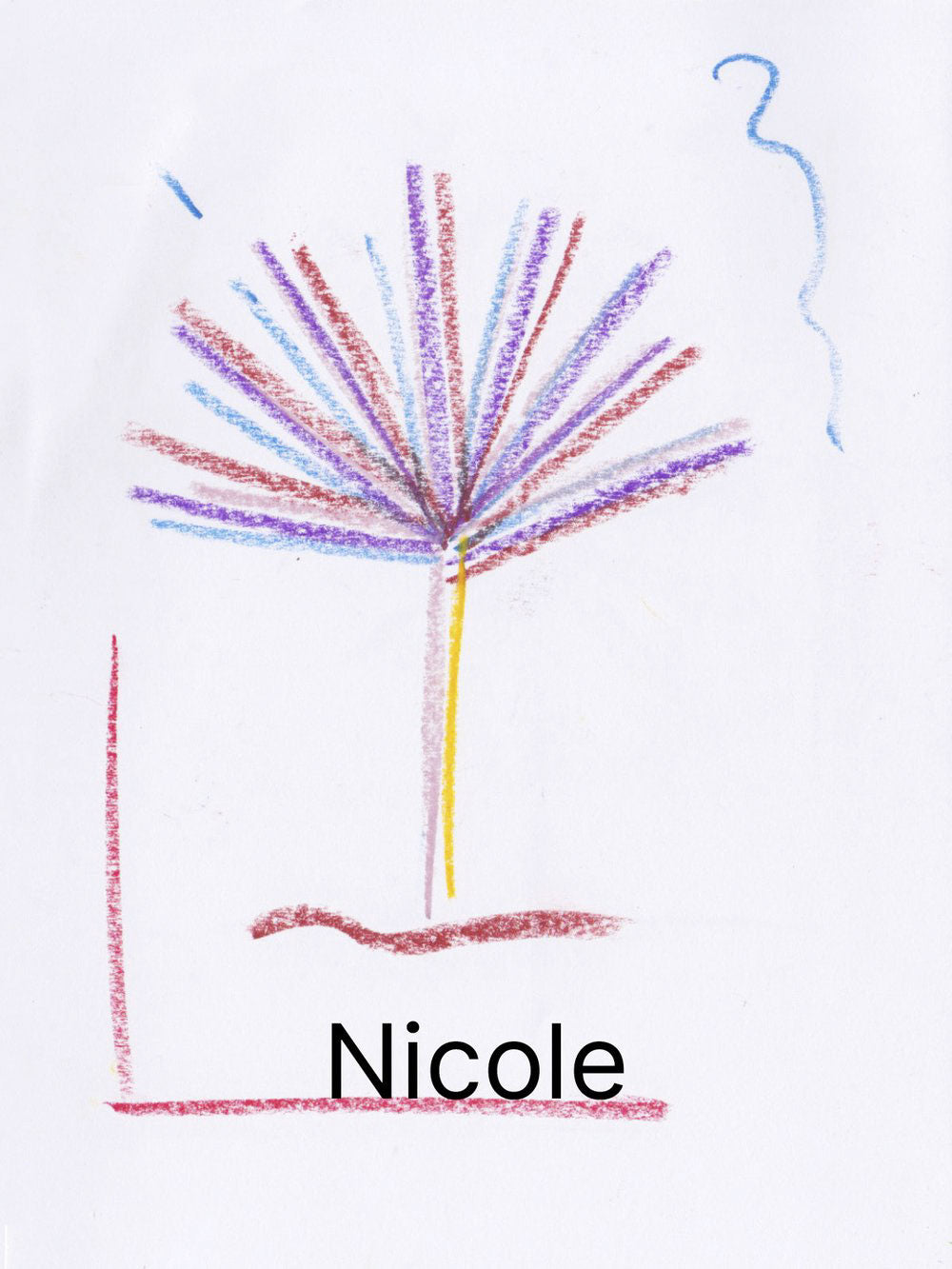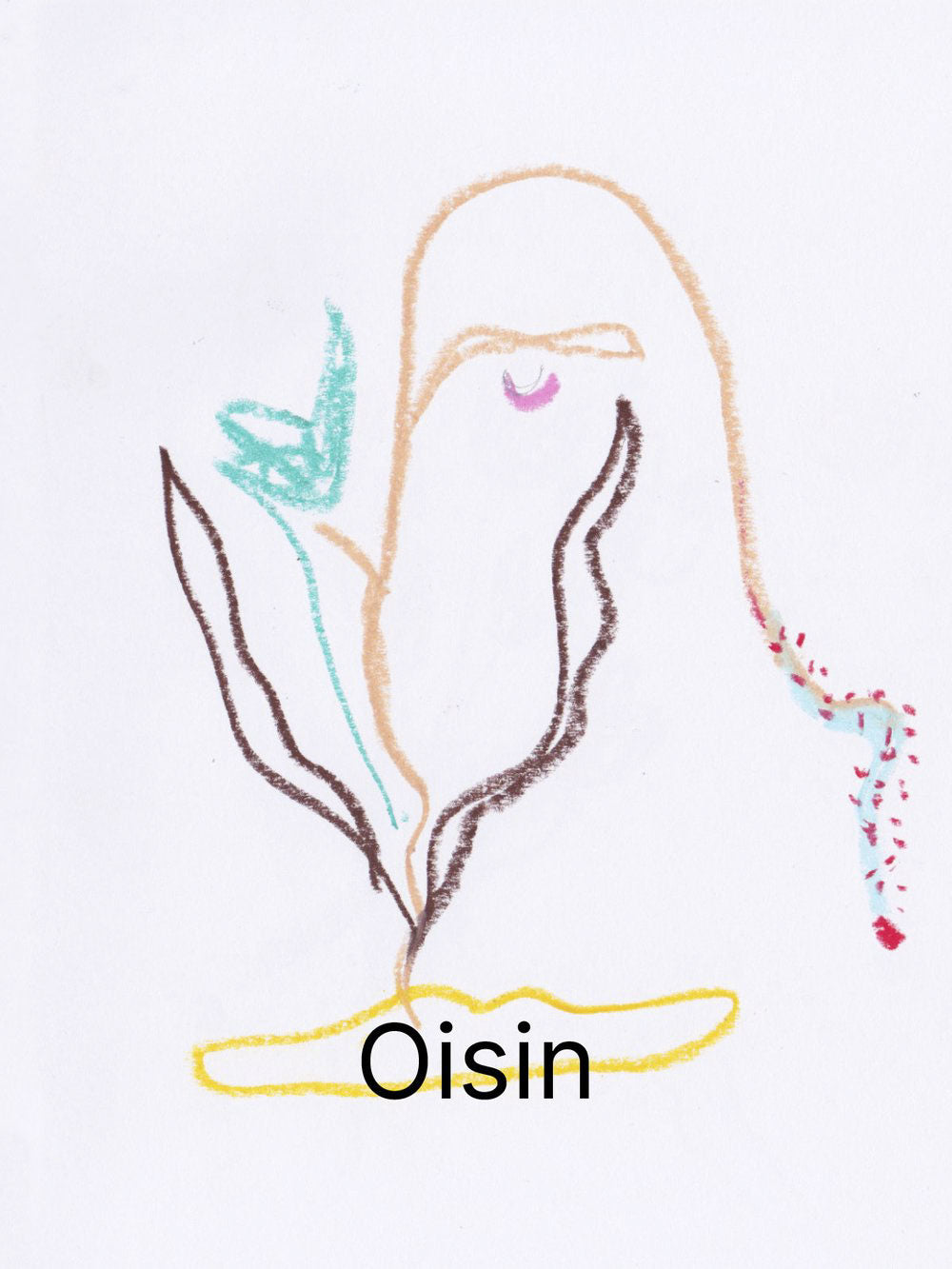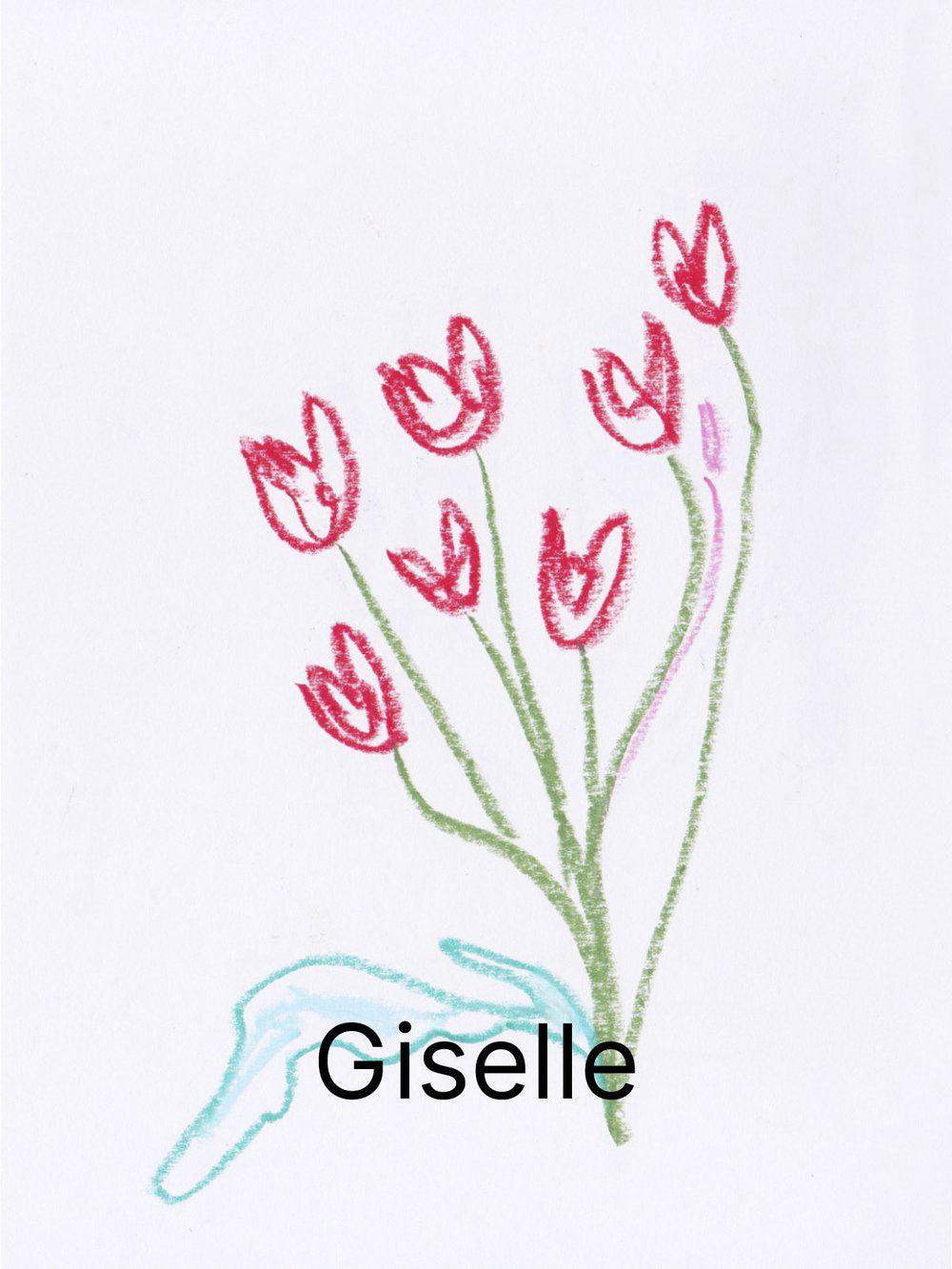Big Small Talks
Nicole Sartirani

I met Nicole more than ten years ago at a mutual friend's house, at a dinner party. On that occasion, her entrance was bizarre because it was so unexpected that she still remembered it because it caused me amazement. Nicole is an actress, she has a charisma difficult to contain in the walls. I remember that she improvised a piece by leaving a room with a blonde wig and she created a theater at home while we all looked at her in amazement.
Now she lives in Berlin and has created a start-up that deals with food, in particular with insects.
What did you have breakfast with this morning?
With a juice of two oranges and a lemon, half a liter of American coffee I drink slowly with a little milk. Finally, I ate yogurt with banana, strawberries, cereals, and toasted insects.
You grew up in a city near Bergamo, surrounded by nature and in close contact with animals, what is one of the first memories that has remained in your memory?
One of my first memories is the image of our horse grazing on the lawn in front of the house. I watched him for hours from the window.
You have traveled having the opportunity to visit many countries and come into contact with different cultures. Today you live in Berlin, what are the three things you love most about this city?
In Berlin I love three things in particular:
- People, almost all migrants, like me. Sometimes one has the feeling of traveling to different countries, staying in the same city
- The clear air, the weather changes continuously thanks to the strong wind that blows. In some moments the air is so clean that it looks transparent
- The smell of the subway, unpleasant, but familiar. A unique smell that I only sense in the Berlin subway, which greets me at the airport when I leave and welcomes me as soon as I return.
You studied Languages and theater in Rome and then you started the project 'Theater at home'. I read that for you the theater is similar to a restaurant where gathered around a table, you can see a slice of real life, in which dishes and drinks are the real protagonists and every night a show is staged. How did you approach the world of cooking?
Arrived in Berlin I worked occasionally as an actress and a friend, she comes from the world of cinema, she opened a restaurant serving Ceviche, the first in Germany.
I should have helped her a couple of days a week, but I liked it so much that I stayed full-time for three years, after which I resumed with the theater, but I created 'Mikrokosmosberlin' in parallel. This project consists of a communication and information platform on the subject of edible insects and aims to promote entomophagy in Europe. Thanks to Mikrokosmos I collected my research aimed at defining what is the best way to insert the valuable and sustainable food resource that are insects in our diet. Specifically, I organize events, private dinners, street food markets and workshops on insect cooking and their home breeding.
The project you're working on is about food. During a trip to Thailand you saw people eating insects for the first time and from there came the curiosity that led you to study and do research on the world of entomophagy, up to attending a course in Switzerland on the breeding of organic insects that you started raising at home. How did you turn this experience into what your job is today?
I was lucky to have come across a current topic at the right time. Working daily in catering I had contacts with markets and gastronomes. I started with small events supported by friends and family. Slowly, also thanks to the media that talked a lot about edible insects, curiosity grew in the public and now there is interest and desire to experiment with new things that people bring to me.
How can insects be integrated into everyday western food? Are there any benefits in use?
The benefits are very many, not only for the aspects of environmental sustainability but also for the nutritional level. Insects contain proteins, vitamins, minerals, omega three and six and all nine amino acids. A hundred percent superfood.
I always advise my clients to treat them as if they were seeds, or like chia. Just toast them a little and then add them to our classic dishes, without meat or fish of course. They can also be blended and used as flours in desserts, bread, and pasta. It's really a lot simpler than you'd expect.
If you were given one hundred million euros by an investor, how would you use them to grow your project?
I would bet half the money on education. People need to be re-educated on nutrition, so I'd create a program that would teach you what to eat, how and why. I invest the other half of the financing to boost production and distribution. I would like to build a restaurant on the roof of a building where each floor is dedicated to the organic indoor cultivation of raw materials such as vegetables, sprouts, snails, mushrooms and insects.
Can you give me the recipe of your favorite dish at the moment?
I often make a potato and carrot puree lately. I cook the baked pumpkin and then add it to the puree on which I slowly put a poached egg and a few flour worms roasted in butter and sage, it's delicious.
To taste with toasted black bread.
What does the word success mean to you?
Success for me means being able to earn money doing something we like.
What have you changed your mind about over the last two years and why?
On long-term projects. I have always thought of building things that would last over time, going from generation to generation, but nowadays I can't make concrete predictions about our lives in fifty years.
I realize how sick our planet is and increasingly subject to the risk of suffering earthquakes, tides, frosts, epidemics or famines. With the melting of ice and climate change, we could indeed see rapid geopolitical changes.
Capitalism is greedy, progress will not stop. Ecology and sustainability are just pretexts for contemporary businesses. Technology is an increasingly integral part of individuals.
Working in the food sector, I realize that eating healthily is a pure illusion.
Therefore, in the last two years, I have developed the art of tasting the present.
What would you write on a billboard in central Berlin?
It's not important what you do, but how you do it.
7 Small Talks
- Your daily uniform: jeans and shirt
- Favorite flowers: daisies
- Your comfort food: pasta
- The favorite place in the city where you live: the gardens of the Tempelhofer Feld
- How many and which languages do you speak: Italian, English, German, French, Spanish
- The city of the heart: Rome
- A friend of yours to interview? What should I ask you? Teresa Capezzuto. I would ask how beautiful it is to collect the rewards after so many sacrifices.
Ho conosciuto Nicole più di dieci anni fa a casa di una amica comune, ad una cena. La sua entrata in scena, in quell'occasione, fu per me bizzarra perché inaspettata tanto da ricordarla ancora oggi perché mi creò stupore. Nicole è un'attrice, ha un carisma difficile da contenere in delle mura. Ricordo che improvvisò un pezzo uscendo da una stanza con una parrucca bionda e creò un teatro a domicilio mentre noi tutti la guardavamo stupefatti.
Ora vive a Berlino e ha dato vita a una start-up che si occupa di cibo, in particolare di insetti.
mikrokosmosberlin.com
Con cosa hai fatto colazione questa mattina?
Con una spremuta di due arance e un limone, mezzo litro di caffè americano che bevo lentamente con un po' di latte. Per finire, ho mangiato yogurt con banana, fragole, cereali e insetti tostati.
Sei cresciuta in una città vicino Bergamo, immersa nella natura e a stretto contatto con gli animali, qual è uno dei primi ricordi che è rimasto impresso nella tua memoria?
Uno dei miei primi ricordi è l’immagine del nostro cavallo al pascolo, nel prato davanti casa. Lo osservavo per ore dalla finestra.
Hai viaggiato avendo la possibilità di visitare numerosi Paesi e di venire a contatto con diverse culture. Oggi vivi a Berlino, quali sono le tre cose che più ami di questa città?
Di Berlino amo tre cose in particolare:
- Le persone, quasi tutti migranti, come me. A volte si ha la sensazione di viaggiare per diversi paesi, restando nella stessa città
- L’aria tersa, il tempo cambia di continuo grazie al vento che soffia forte. In alcuni momenti l’aria è così pulita da sembrare trasparente
- L’odore della metropolitana, sgradevole, ma familiare. Un odore unico che sento solo nella metro di Berlino, che mi saluta all’aeroporto quando parto e mi accoglie non appena ritorno.
Hai studiato Lingue e teatro a Roma e poi hai dato vita al progetto 'Teatro a domicilio'. Ho letto che per te il teatro è simile a un ristorante dove si assiste, riuniti intorno ad un tavolo, ad uno spaccato di vita reale, in cui pietanze e bevande sono i veri protagonisti e ogni sera va in scena uno show. Come ti sei avvicinata al mondo della cucina?
Arrivata a Berlino lavoravo saltuariamente come attrice e un'amica, proviene dal mondo del cinema, ha aperto un ristorante di Ceviche, il primo in Germania.
Avrei dovuto darle una mano un paio di giorni a settimana, ma mi è piaciuto così tanto che sono rimasta a tempo pieno per tre anni, dopo i quali ho ripreso con il teatro, ma ho dato vita parallelamente a 'Mikrokosmosberlin'. Questo progetto consiste in una piattaforma di comunicazione ed informazione sul tema degli insetti commestibili e mira alla promozione dell'entomofagia in Europa. Grazie a Mikrokosmos ho raccolto le mie ricerche destinate a definire quale sia il modo migliore di inserire la preziosa e sostenibile risorsa alimentare che sono gli insetti nelle nostra dieta. Nello specifico organizzo eventi, cene private, mercati di street food e curo workshop sulla cucina di insetti e sul loro allevamento casalingo.
Il progetto in cui sei impegnata riguarda il cibo. Durante un viaggio in Thailandia hai visto per la prima volta persone mangiare insetti e da lì è nata la curiosità che ti ha portata a studiare e fare ricerca sul mondo dell'entomofagia, fino a frequentare un corso in Svizzera sull'allevamento di bio insetti che hai cominciato ad allevare a casa. Come hai fatto a trasformare questa esperienza in ciò che oggi è il tuo lavoro?
Ho avuto la fortuna di essermi imbattuta in un tema attuale nel momento giusto. Lavorando quotidianamente nella ristorazione avevo contatti con mercati e gastronomi. Ho iniziato con piccoli eventi sostenuta da amici e famiglia. Piano piano, anche grazie ai media che hanno parlato molto di insetti commestibili, è cresciuta la curiosità nel pubblico ed ora c’è interesse e voglia di sperimentare cose nuove che portano le persone da me.
Come si possono integrare gli insetti nell'alimentazione quotidiana occidentale? Ci sono dei benefici nell’utilizzo?
I benefici sono moltissimi, non solo per gli aspetti di sostenibilità ambientale ma anche a livello nutrizionale. Gli insetti contengono proteine, vitamine, minerali, omega tre e sei e tutti e nove gli aminoacidi. Sono un super food al cento per cento.
Io consiglio sempre ai miei clienti di trattarli come se fossero dei semi, o come la chia. Basta tostarli un po' e poi aggiungerli ai nostri piatti classici, senza carne né pesce ovviamente. Si possono anche frullare e usare come farine nei dolci, nel pane e nella pasta. E’ davvero molto più semplice di quanto ci si aspetti.
Se ti fossero dati cento milioni di euro da un investitore, come li useresti per far crescere il tuo progetto?
Io punterei metà dei soldi sull’istruzione. Le persone vanno rieducate in materia di alimentazione, quindi creerei un programma che ti insegni cosa mangiare, come e perché. L’altra metà del finanziamento la investirei per potenziare produzione e distribuzione. Mi piacerebbe realizzare un ristorante sul tetto di un edificio in cui ogni piano venga dedicato alla coltivazione biologica indoor delle materie prime come verdure, germogli, lumache, funghi e insetti.
Mi dai la ricetta del tuo piatto preferito al momento?
Ultimamente faccio spesso una purea di patate e carote. Cucino la zucca al forno e poi la unisco alla purea su cui adagio un uovo in camicia e un pochino di vermi da farina arrostiti al burro e salvia, è delizioso.
Da gustare con del pane nero tostato.
Che significato ha la parola successo per te?
Successo per me significa riuscire a guadagnare soldi facendo una cosa che ci piace.
Su cosa hai cambiato opinione negli ultimi due anni e come mai?
Sui progetti a lungo termine. Ho sempre pensato a costruire delle cose che durassero nel tempo, che passassero di generazione in generazione, ma oggigiorno non riesco a fare previsioni concrete sulle nostre vite tra cinquant'anni.
Mi rendo conto di quanto il nostro pianeta sia malato e sempre più soggetto al rischio di subire terremoti, maree, gelate, epidemie o carestie. Con lo scioglimento dei ghiacci e il cambiamento climatico potremmo davvero assistere a dei cambiamenti geopolitici rapidissimi.
Il capitalismo è avido, il progresso non si fermerà. Ecologia e sostenibilità sono solo pretesti per business contemporanei. La tecnologia è una parte sempre più integrante degli individui.
Lavorando nel settore alimentare mi rendo conto che nutrirsi in modo sano è una pura illusione.
Pertanto, negli ultimi due anni, ho sviluppato l’arte del gusto del presente.
Cosa scriveresti su un billboard in centro a Berlino?
Non è importante cosa fai, ma come lo fai.
7 Small Talks
- La tua uniforme quotidiana: jeans e camicia
- I fiori preferiti: margherite
- Il tuo comfort food: pasta
- Il posto preferito nella città in cui vivi: i giardini del Tempelhofer Feld
- Quante e quali lingue parli: italiano, inglese, tedesco, francese, spagnolo
- La città del cuore: Roma
- Una tua amica da intervistare? Cosa dovrei chiederle? Teresa Capezzuto. Le chiederei quanto è bello raccogliere le ricompense dopo tanti sacrifici.

